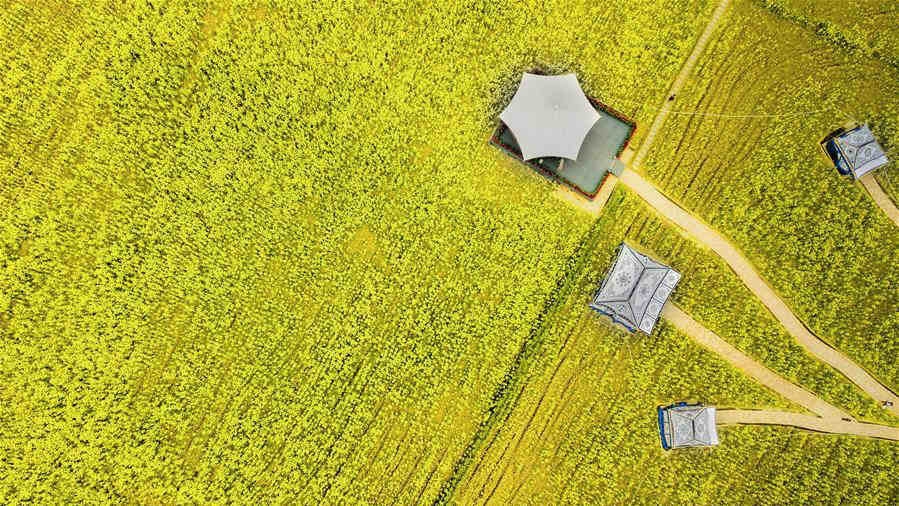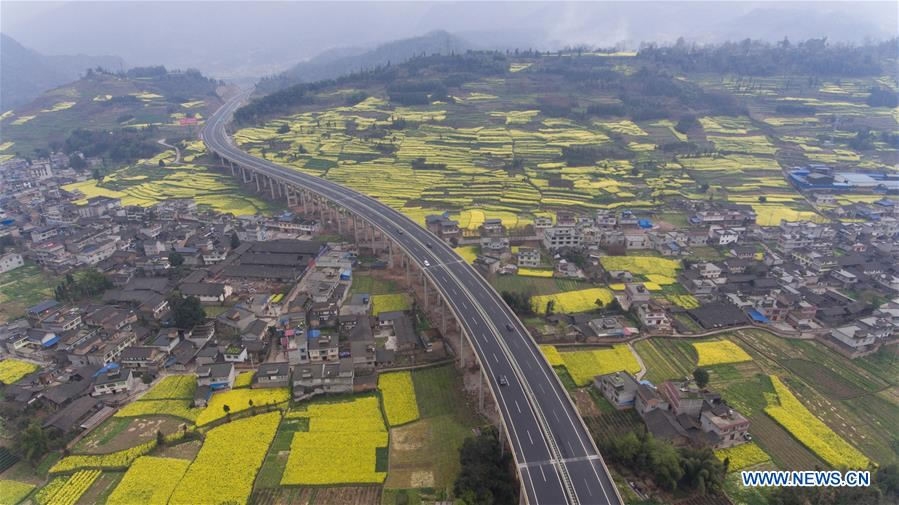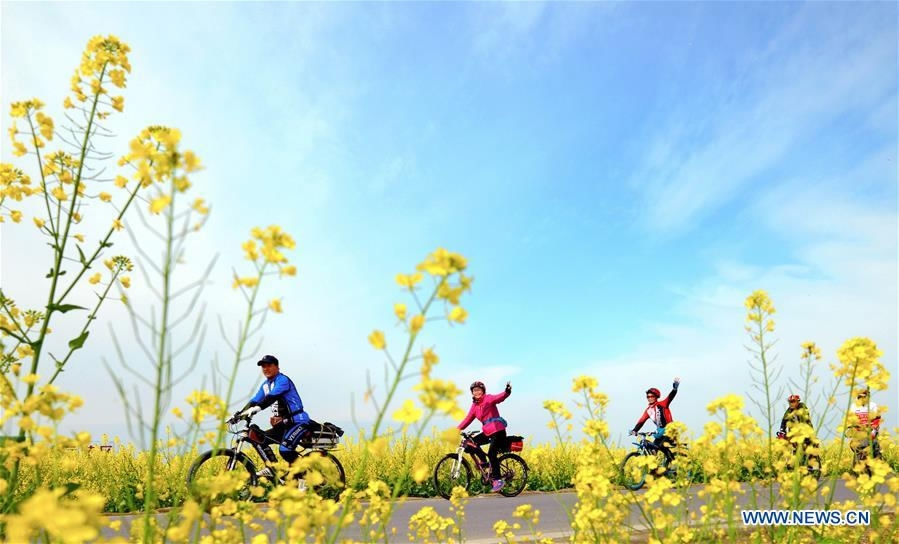
Opinions
20:15, 13-Mar-2018
Opinion: Who controls rural land in China and why it matters
Guest commentary by Chen Jueying and Liu Heguang

The rural land system has a strategic value of securing the nation and helping people stabilize their lives. The reform of the agricultural land system has always played an important role in the overall change, development, and history of the entire country.
Recalling the history of the Communist Party of China, it is no surprise that the Party is trusted and supported by people since the land revolution; it was this very support that enabled them to encircle the cities and win the revolution.
During the war of liberation, the Communist Party of China carried out land reform in all liberated areas throughout the country and abolished the feudal and semi-feudal characteristics of land systems, arousing the enthusiasm of farmers to engage in revolution and production. A large number of young and middle-aged people joined the people's army, guaranteeing the victory in the liberation war.

The Ya'an-Kangding express highway running through Leying Township of Tianquan County, southwest China's Sichuan Province, March 9, 2018. Rural tourism has been stressed as a crucial part of China's strategies of rural vitalization. /Xinhua Photo
The Ya'an-Kangding express highway running through Leying Township of Tianquan County, southwest China's Sichuan Province, March 9, 2018. Rural tourism has been stressed as a crucial part of China's strategies of rural vitalization. /Xinhua Photo
After the establishment of a New China, the rural land system experienced several agricultural land system patterns. Initially, rural land was owned and operated by the farmers, which eventually changed to rural land being owned and operated by collectives. Ultimately, on the basis of the spontaneous practice by the farmers, rural land is now owned by collectives and operated by farmers. Family-contract responsibility systems improved the efficiency of agricultural production, liberated productive forces, promoted the development of agriculture, and provided a powerful backing of “San Nong” development for China’s “reform and opening up.”
However, during the process of urbanization, rural land systems have encountered new problems; the main issue is that farmers' land use rights are not well protected. The land use rights of farmers have been encroached upon over the years, and the benefits farmers derive from the land have diminished. This has created social risks and undermined social stability in some places. In this case, taking enlivening rural land use rights as its core, the reform of the land system is incredibly important.
Under the current legal framework, enlivening rural land use rights is an important measure to reform rural land systems under the premise of maintaining the collective ownership of rural land.
The emphasis must be on three major steps. Firstly, it is necessary to confirm the rights; issuance of rural land use certificates will ensure invigoration of rural land use rights. Secondly, it is necessary to invigorate the market, to establish transaction networks of rural land use rights, to build in a pricing mechanism, to provide trading opportunities in land use licenses. Thirdly, it is necessary to get all the main agents involved, motivate both sides of land use right circulation to promote the trade of licenses actively.

Visitors ride bicycles along the field of flowers in Ranyi Township of Chengdu, southwest China's Sichuan Province, March 11, 2018. Rural tourism has been stressed as a crucial part of China's strategies of rural vitalization. /Xinhua Photo
Visitors ride bicycles along the field of flowers in Ranyi Township of Chengdu, southwest China's Sichuan Province, March 11, 2018. Rural tourism has been stressed as a crucial part of China's strategies of rural vitalization. /Xinhua Photo
The current purpose of animating the rural land use rights is to open up a path to provide a system supply for rural vitalization, and to promote the modernization of agriculture and rural areas. And its ultimate goal is to make it more beneficial for farmers.
Through enlivening rural land use rights, the rural land use right can be used as collateral for loans and other business transactions; rural land can be used, operated, circulated in accordance with the provisions; rural land use right can also be given a cash value or calculated as stocks and be used as capital in shareholding management, cooperative management and partnership management.
Farmers can benefit from reform in four different ways:
The firstly, the gain is from the capitalization of the land use rights. The farmers, who become a shareholder with the land use right, will increase income from the property.
Secondly, the farmers should benefit from being able to buy and sell land use rights. The farmers, who sell their land use right should be happy with the price they reach.
The thirdly, the farmers who buy other people’s land rights should gain from all kinds of returns to scale enabling farmers to expand the scale of their operations. They can also benefit from the use of larger scale credit funds. They can gain returns when using advanced technology. They can gain direct financial benefits from the scale of their operations. They can also gain returns by marketing their competitive advantage.
And fourthly, the farmers, who sell their rural land use rights, can use their time more productively doing other things which should also increase their incomes.
(Liu Heguang is a researcher of Institute of Agricultural Economics and Development (IAED), Chinese Academy of Agricultural Sciences (CAAS). Chen Jueying is an assistant researcher of IAED, CAAS. The article reflects the authors' opinion, and not necessarily the views of CGTN.)

SITEMAP
Copyright © 2018 CGTN. Beijing ICP prepared NO.16065310-3
Copyright © 2018 CGTN. Beijing ICP prepared NO.16065310-3